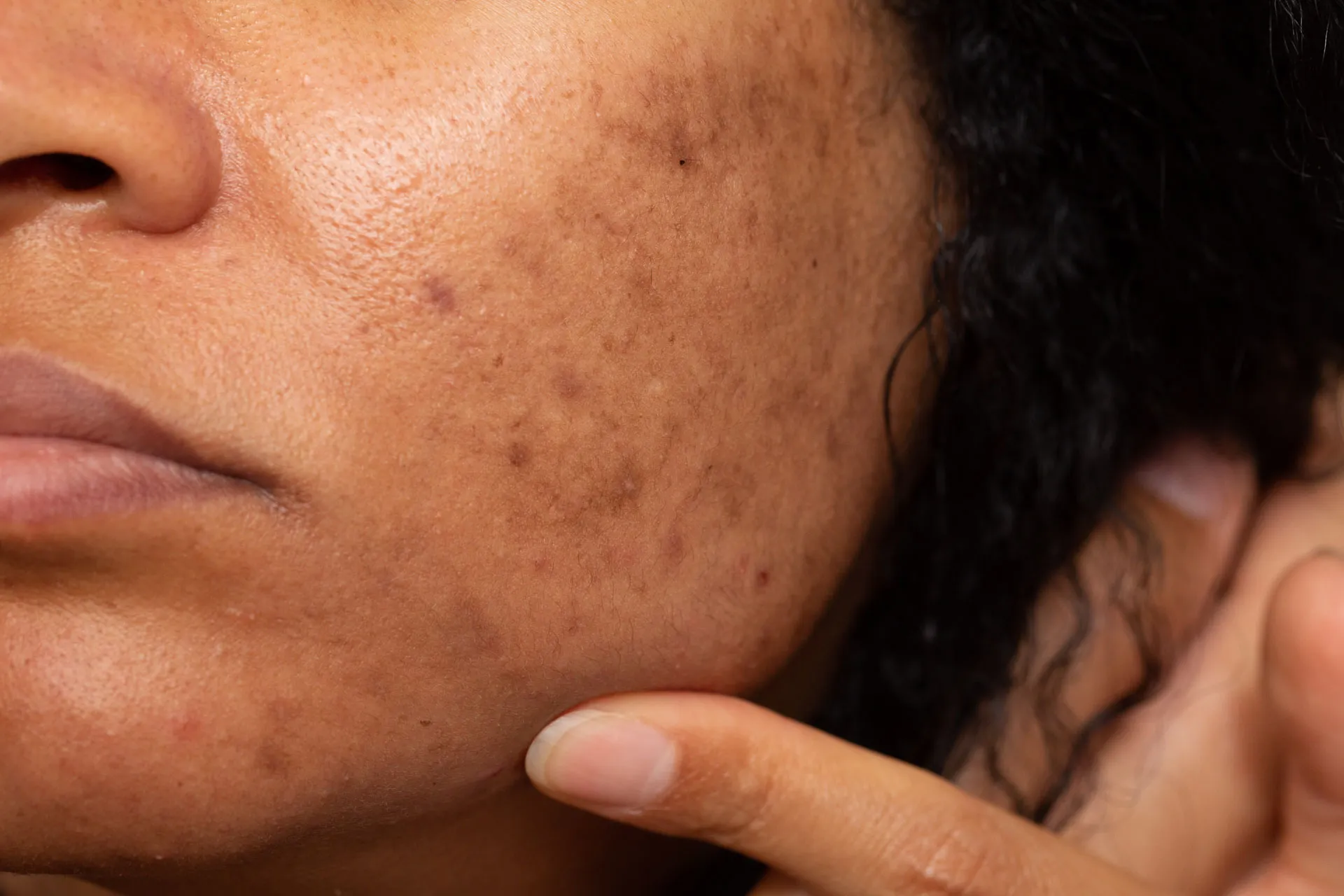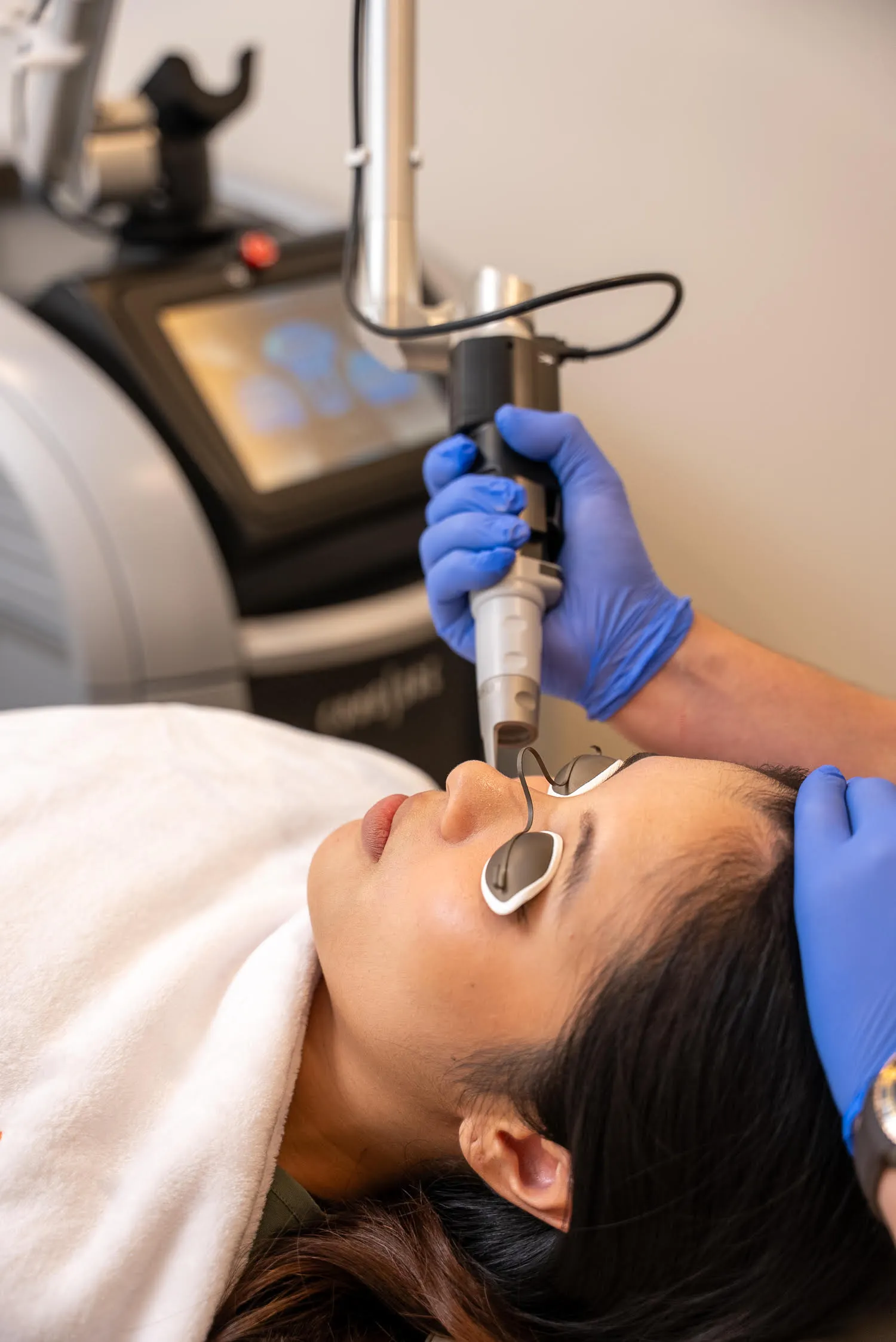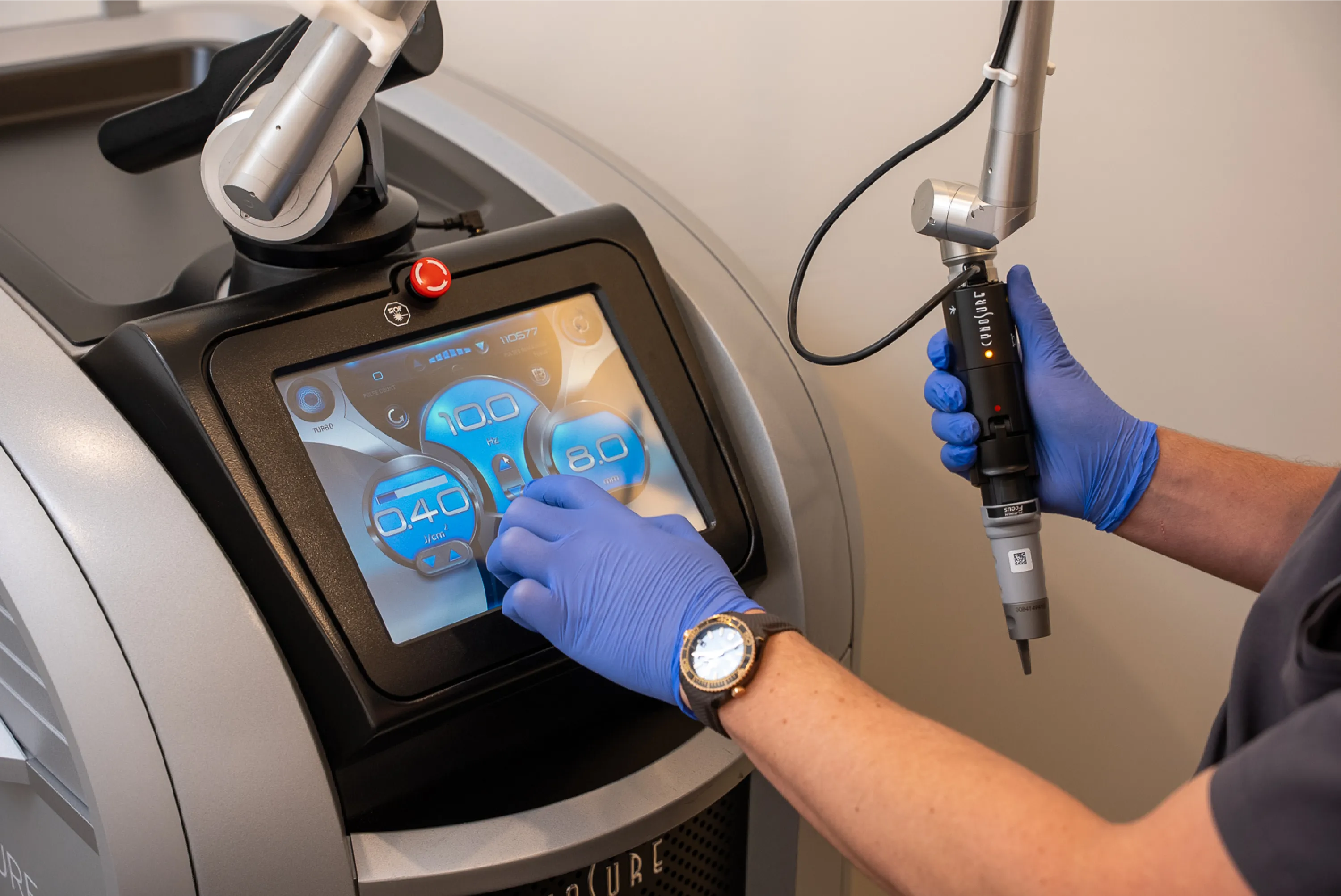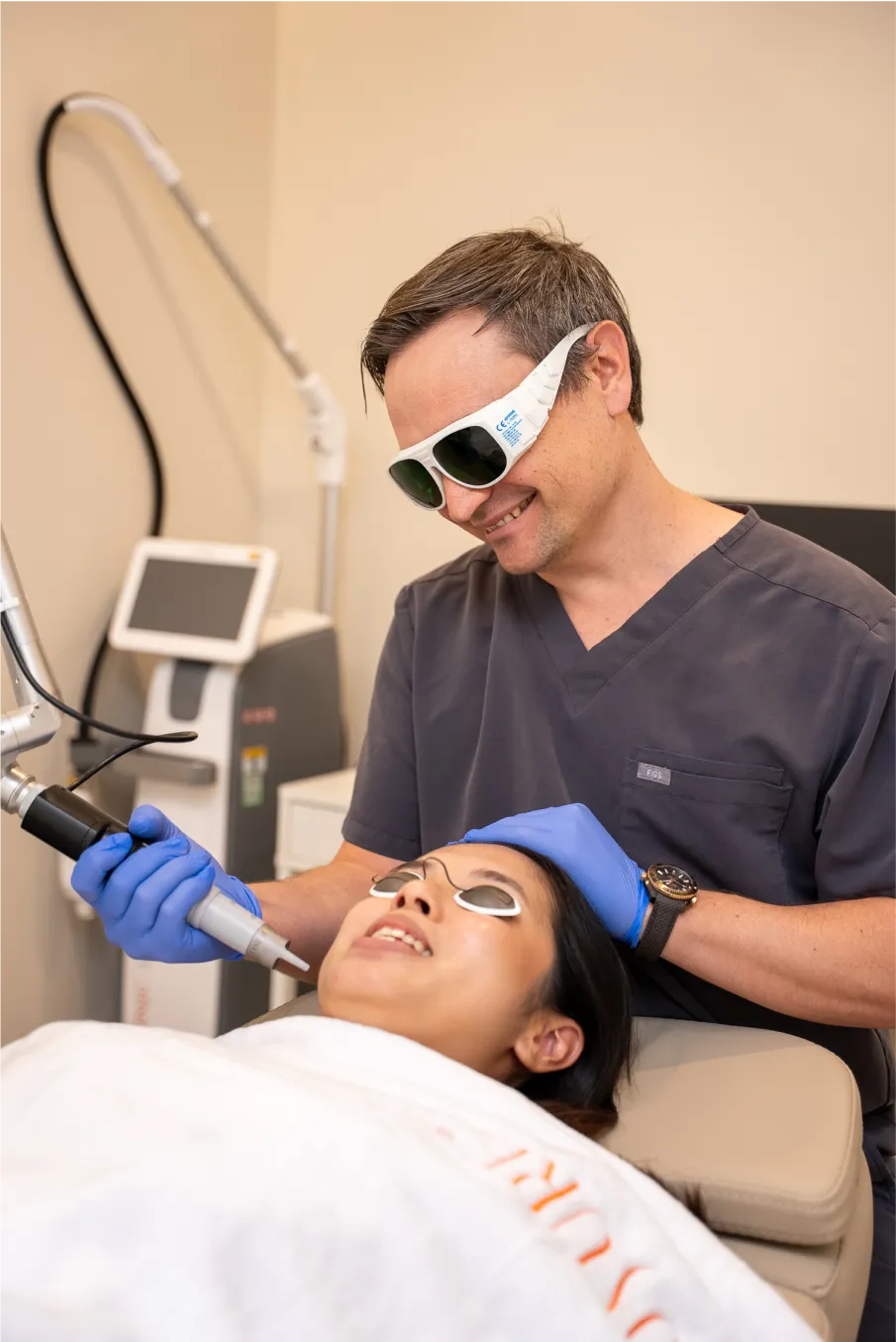Melasma

What is melasma?
Melasma is a common skin condition that causes dark, irregular patches to appear on the face. It’s often linked to factors like sun exposure, hormonal changes, and genetics. These patches can be stubborn and resistant to standard skincare products, making melasma difficult to manage without professional treatment.
If you’ve noticed uneven pigmentation or persistent dark spots, melasma might be the cause. While it’s not harmful, it can affect confidence and quality of life. That’s why effective diagnosis and treatment by a specialist dermatologist are important.
Why melasma needs specialist care
Melasma isn’t just surface-level pigmentation — it’s a complex skin condition that demands precise diagnosis and expert treatment.
Accurate diagnosis
Melasma can easily be mistaken for other pigmentation problems. It’s vital to see a dermatologist to get the correct diagnosis — ensuring you receive the right treatment for your specific condition.
Targeted treatments
Dermatologists are best equipped to treat melasma because they have specialist training and access to advanced laser technology and medical therapies that safely target the deeper causes of pigmentation.
Ongoing management
Melasma often requires ongoing care and monitoring. Specialists provide support using medical-grade cosmeceuticals and recommend daily sunscreen use to manage triggers and reduce flare-ups over time.
What to expect during treatment
Melasma treatment typically involves a series of laser sessions spaced several weeks apart, with each session lasting 20 to 30 minutes. You may feel a mild warming or tingling sensation during the procedure, but it is generally well tolerated. Topical anaesthetic is used, so no injections are needed, and downtime is very minimal. After treatment, you may experience some redness or mild swelling, but these effects usually subside quickly. We will provide clear aftercare instructions to support healing and optimise results.
Most patients see gradual improvement over multiple sessions, with long-lasting reduction in pigmentation when combined with proper skincare and sun protection.

Packages
Who can benefit?
Melasma affects people with various skin types, but it’s most common in those with medium to darker complexions. While the exact cause of melasma isn’t fully understood, it is often secondary to factors like sun exposure, genetics, and hormonal changes such as pregnancy.
Suitable for all skin types
Our treatments are effective and safe for a wide range of skin tones, including medium to darker complexions prone to melasma.
Hormonal and environmental factors
We understand melasma often worsens with hormonal changes or sun exposure, so our care includes managing triggers.
Proven, lasting results
With specialist care and ongoing management, many patients achieve significant, long-term improvement in pigmentation.


Why us
Why choose us for melasma?
Melasma is a complex condition that requires specialist care. Our clinic is led by dermatologists with extensive post-medical school training in medical, surgical, and reconstructive dermatology, not general practitioners or non-specialists. Additionally, our dermatologists have completed further studies in South Korea to hone their skills in managing Asian skin types, ensuring precise and effective treatment for all skin tones.
We use advanced Korean Pico laser technology designed specifically to break down stubborn pigmentation safely and effectively, aiming for long-term remission rather than short-term fixes.
Our treatments are grounded in evidence and supported by years of clinical experience. We combine medical expertise with state-of-the-art equipment to deliver precise care that protects your skin while addressing the root cause.
Our most commonly asked questions
Melasma is often triggered by hormonal changes, sun exposure, and genetic factors. It appears as dark patches, usually on the face, and can be persistent without specialist treatment.
Yes. We use advanced Korean Pico lasers designed to target pigmentation precisely, minimising risk and protecting healthy skin.
Most patients require multiple sessions spaced weeks apart. The exact number depends on your skin type, melasma severity, and how your skin responds to treatment.
Melasma can recur, especially with sun exposure or hormonal changes. That’s why ongoing management and sun protection are essential parts of care.
Some melasma treatments provided by qualified dermatologists are eligible for Medicare rebates. We’ll discuss your options during your consultation.

Ready to take the next step in your skincare?
Whether it’s pigmentation, scarring, rosacea or skin cancer, we’ll provide a clear diagnosis and a treatment plan tailored to your skin’s needs. Call us today or book a consultation to start your specialist care.

